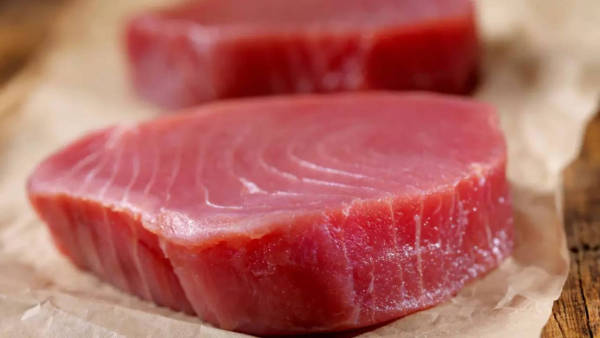
It is said that the path to someone’s heart goes through the stomach. In modern times, the path to a healthy heart goes through what they choose to put inside their stomach. The world now, as we know it, is consumed by the fast-paced lifestyle. Amidst all the hustle and bustle, health truly has become the wealth to hold on to. In order to stay healthy through a demanding life and work, one needs to incorporate a few things in their daily routine. One of those crucial daily habits is, incorporating a healthy and nutritious diet. A nutritious diet not only keeps up with the overall health of your body but also helps in keeping certain illnesses at bay.
It’s no secret that incorporating fish into your diet is good for you. It’s full of protein, healthy fats, and other important nutrients that can benefit your health. From heart health and brain health to bone health and eye health – consuming fish, which is a primary source of omega-3 fatty acids , can help with all of them. The omega-3s in fish also lower triglyceride levels, slow plaque growth in arteries, slightly lower blood pressure, reduce blood clots and inflammation, and improve blood vessel elasticity.
Tuna and salmon are two popular seafood choices and among the most commonly consumed fish in the United States. Both of them are nutritious fish that are high in protein, vitamins, and minerals, but they have different nutritional profiles. As such, one may wonder how they compare and whether one is a better choice than the other.
Tuna:

Tuna is a large, muscular fish with flesh that ranges from pink to dark red depending on the variety. The colour comes from myoglobin, an oxygen-storing protein found in muscle. Myoglobin breaks down quickly when heated. Thus, cooked and canned tuna looks greyer than raw tuna.
Following are the health benefits of Tuna:
Heart health: Tuna contains omega-3 fatty acids, which can help reduce LDL cholesterol and the risk of cardiovascular disease.
Eye health: Omega-3s can help with the health of the retina and reduce the risk of dry eye.
Blood sugar control: Tuna has no carbohydrates per serving, which can help support blood sugar control.
Muscle mass: Tuna contains polyunsaturated fat and essential amino acids, which can help support muscle mass retention.
Immune system: Tuna contains nutrients like selenium, zinc, manganese, and vitamin C, which help to boost immunity.
Weight loss: Tuna is high in protein and low in calories, which can help with weight loss.
Skin health: Omega-3s in tuna can help preserve collagen in the skin and contribute to thick, glowing, and moisturized skin.
Tuna is also a good source of vitamin B12, which helps the body form new red blood cells and prevent anemia.
Salmon:

The flesh of salmon ranges from pink to deep reddish-orange. This is a result of its diet, which comprises krill and tiny crustaceans. These are rich in colourful carotenoids, namely astaxanthin. Astaxanthin is heat stable, so unlike tuna, salmon remains red even when cooked.
Salmon is considered a superfood because it contains many nutrients that can help with a variety of health issues. The health benefits of Salmons are many, such as:
Heart health: Salmon is high in omega-3 fatty acids, which can help lower blood pressure, reduce inflammation, and improve cholesterol levels. Salmon also contains potassium, which can help prevent excess fluid retention.
Brain health: Salmon contains omega-3s, which are important for brain function and may help reduce the risk of cognitive decline, Alzheimer's disease, and dementia. Salmon is also a good source of vitamin B12, which is important for nerve function.
Bone health: Salmon contains vitamin D, which helps the body absorb calcium and build strong bones. It also contains phosphorous, which is another mineral that's important for bone health.
Inflammation: Salmon can help reduce inflammation, which is a cause of many chronic conditions.
Thyroid health: Salmon contains selenium, which is important for the proper functioning of the thyroid gland.
Skin health: Salmon contains astaxanthin, an antioxidant that may benefit skin health.
Weight management: Smoked salmon is high in protein and low in calories, which can help you feel full and boost your metabolism.
Tuna or Salmon – which is your pick?

Both salmon and tuna are healthy choices. However, the best choice depends on your health goals, and of course, your personal taste.
If you’re trying to improve your cholesterol and protect your heart, it’s smart to choose salmon more frequently due to its omega-3s fatty acid content, which may benefit your heart health. On the other hand, if you’re looking to up your protein intake without adding too many calories to your diet, tuna is a great option.
When you’re looking for a quick and easy meal, both types come in cans and pouches.
Tuna tends to have more mercury than salmon. Pregnant women and young children should limit their consumption of certain types of tuna. Canned light tuna is a good choice for those who need to limit their mercury exposure.
Ideally, you should eat a variety of fish, so if you like the taste and texture of tuna and salmon, eat them both and alternate your intake of them. That way, you’ll get the nutritional benefits of both while minimizing your exposure to mercury.



